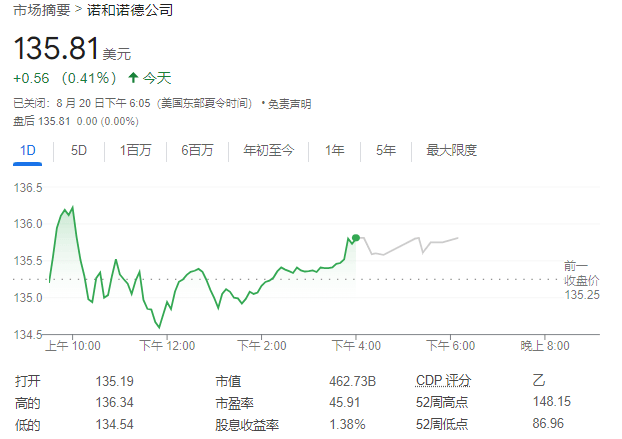Recent research findings have revealed that patients using Novo Nordisk’s weight loss and diabetes medications have a higher incidence of suicidal thoughts, a discovery that heightens concerns in the medical community regarding the safety of these drugs.
On Tuesday, August 20, Eastern Time, the results of this study were published in the American Medical Association’s journal JAMA Network Open. This study utilized the World Health Organization (WHO) global database for adverse drug reactions for the first time to analyze reports of suicidal thoughts among patients taking these medications.
The study found that patients taking semaglutide experienced suicidal thoughts at a higher rate compared to those using other medications. Novo Nordisk promotes Ozempic, a diabetes medication, and Wegovy, a weight loss drug, through semaglutide.
On Tuesday night, Novo Nordisk’s U.S. stock was minimally affected by this news, ultimately closing up 0.41%, with no significant fluctuations in after-hours trading.
The authors of the study suggest that doctors should exercise extra caution when prescribing medications to patients with a history of depression.
Although the U.S. Food and Drug Administration (FDA) did not find evidence earlier this year in preliminary assessments that drugs like Ozempic and Wegovy lead to suicidal thoughts or behaviors, the FDA stated that a small risk cannot be ruled out and will continue to investigate. The European Medicines Agency (EMA) risk assessment committee also concluded in April that these medications do not increase the risk of suicide or self-harm.
According to media reports, Novo Nordisk stated in an email that the findings of the EMA and FDA are consistent with clinical trial data, and they pledged to collaborate with regulatory agencies to monitor the safety of medications, including ongoing research and data from actual use.
However, the authors reporting in JAMA Network Open acknowledged that the WHO database lacks key information, such as the duration of patients’ treatment, and that the data may be biased due to reliance on self-reports from patients and doctors.
Francesco Salvo, a pharmacologist at the University of Bordeaux, wrote in an accompanying editorial that the research results should prompt doctors to be more cautious when prescribing semaglutide to patients with a history of depression or suicidal attempts. Stephen Evans, a professor of pharmacoepidemiology at the London School of Hygiene and Tropical Medicine, believes that spontaneous reports from patients in the WHO database are easily influenced by biases, including media reports, making the evidence weak and inconclusive.
In this study, the authors analyzed over 32 million potential adverse event reports submitted to the WHO VigiBase database, finding that reports of suicidal thoughts and behaviors related to semaglutide were 45% higher compared to other treatments, particularly among patients also using antidepressants.
However, Stephen Burgess from the MRC Biostatistics Unit at Cambridge University cautioned that these findings do not imply that Ozempic and Wegovy themselves are dangerous or induce suicidal thoughts, as significant weight loss itself may also affect emotions. Burgess commented through the Science Media Centre:
“We need to clarify whether these results represent a specific side effect of these drugs or an uncommon but tragic outcome for some individuals during weight loss.”
“We need to clarify whether these results represent a specific side effect of these drugs or an uncommon but tragic outcome for some individuals during weight loss.”
Risk Disclaimer
The market carries risks; investment should be approached with caution. This article does not constitute personal investment advice and does not take into account the specific investment objectives, financial situation, or needs of individual users. Users should consider whether any opinions, views, or conclusions in this article align with their specific circumstances. Investment based on this is at one’s own risk.


